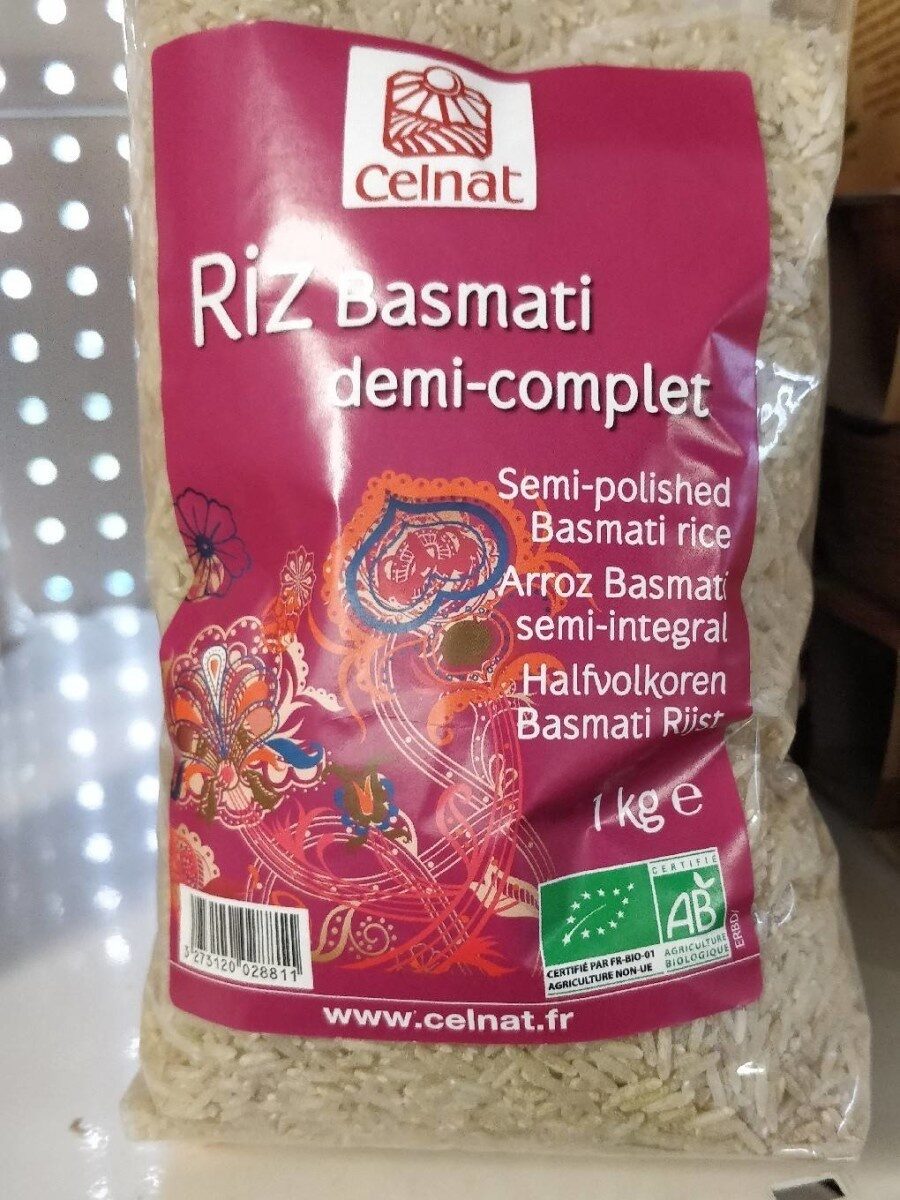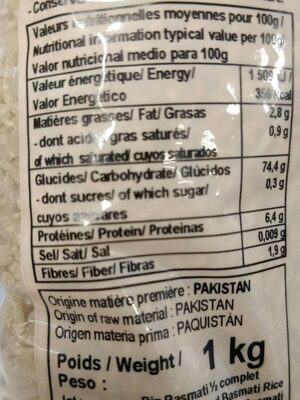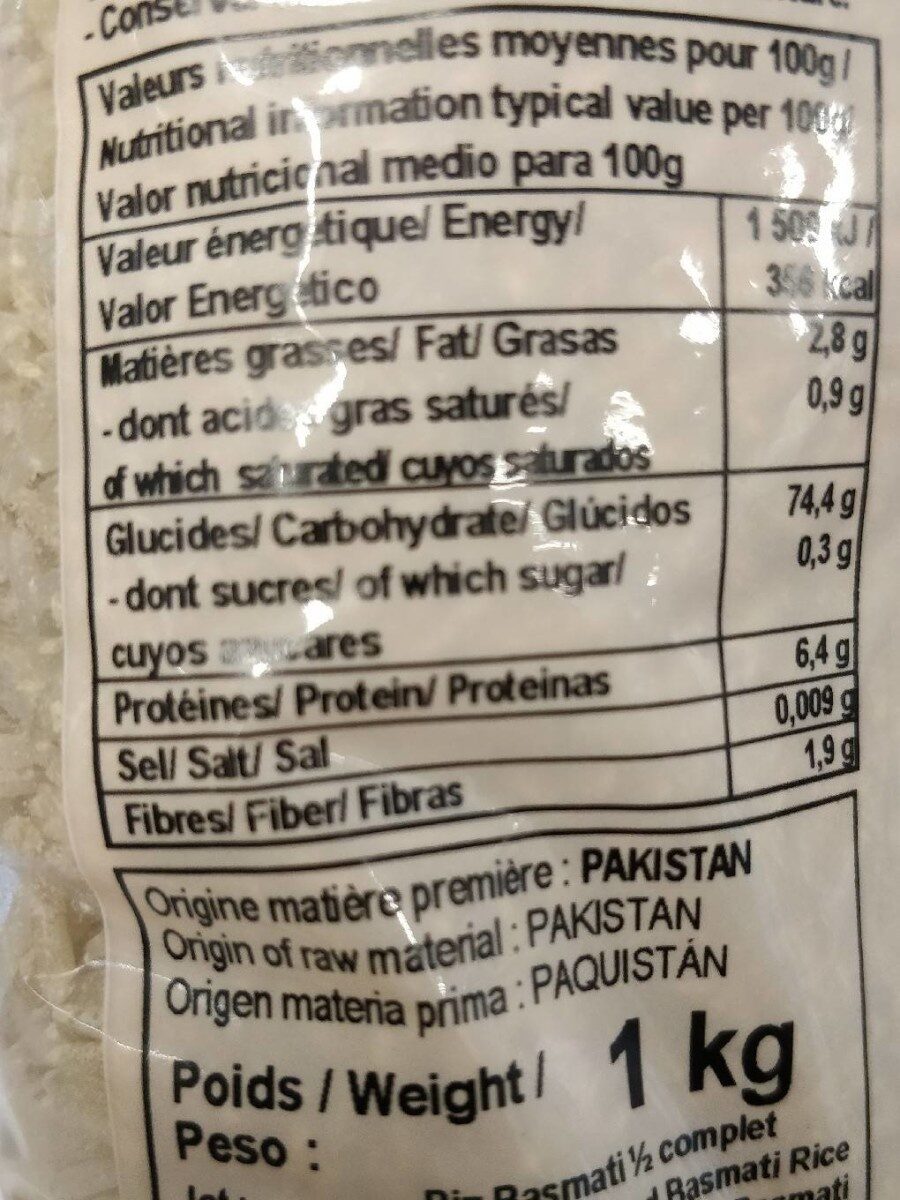Riz basmati semi complet - Celnat - 1 kg
This product page is not complete. You can help to complete it by editing it and adding more data from the photos we have, or by taking more photos using the app for Android or iPhone/iPad. Thank you!
×
Barcode: 3273120028811 (EAN / EAN-13)
Quantity: 1 kg
Brands: Celnat
Categories: Plant-based foods and beverages, Plant-based foods, Cereals and potatoes, Seeds, Cereals and their products, Cereal grains, Rices, Aromatic rices, Indica rices, Long grain rices, Brown rices, Basmati rices, Brown Basmati rices
Labels, certifications, awards:
Organic, EU Organic, Non-EU Agriculture, FR-BIO-01, AB Agriculture Biologique

Countries where sold: France
Matching with your preferences
Environment
Carbon footprint
Packaging
Transportation
Labels
Report a problem
Data sources
Product added on by kiliweb
Last edit of product page on by quentinbrd.
Product page also edited by roboto-app, segundo, yuka.WnBzR0VZQUN0cWdwdDgwZitFakh5OThzMTV5T1FGR0ZDdW9zSVE9PQ.









